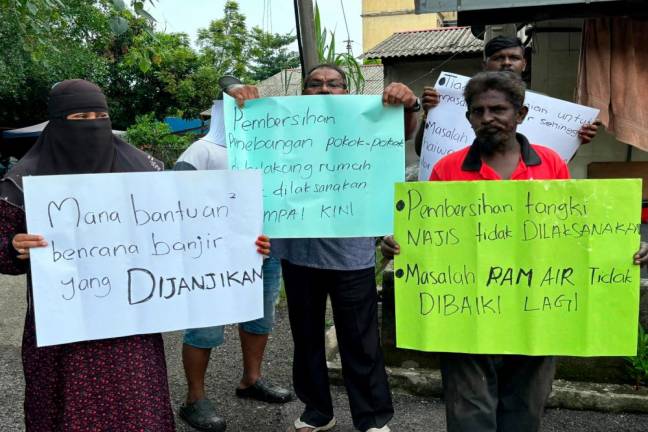THE Prevention and Control of Infectious Diseases Act 1988 (the Act) relates only to “infectious diseases”. These are defined under section 2 as any disease as specified in the First Schedule Part I of the Act. The schedule lists 29 diseases specifically.
This schedule does not specifically list Covid-19 as an infectious disease.
Significantly, when another coronavirus emerged sometime in 2012, namely, the Middle East Respiratory Syndrome Coronavirus (MERS-CoV), it was added to the list in 2016. This was under section 30 of the Act, which empowers the minister to add to the list in the First Schedule by an order in the Gazette.
This implies that it is necessary to do so for the disease to be included for coverage under the Act. This also implies that it is not sufficient to rely merely on item 30 of the First Schedule, which lists “Any other life threatening microbial infection” as an infectious disease by reference to the definition in section 2 of the Act.
The World Health Organisation (WHO) on Feb 11 identified and announced the present virus by its specific name – Covid-19. Yet the First Schedule was not amended to list this disease specifically as an infectious disease.
Note that some countries, namely Singapore and the UK have named this disease specifically in their law.
Singapore’s Infectious Diseases Act lists Covid-19 as a dangerous infectious disease and in the UK, its Health Protection (Coronavirus) Regulations 2020 was laid before Parliament on Feb 10 and immediately came into force. These were made under the principal Public Health (Control of Disease) Act 1984
Nonetheless there is no denying that Covid-19 is a microbial infection which is life threatening. This will qualify it as an infectious disease under the generic item 30 of the First Schedule – “(A)ny other life threatening microbial infection”.
Hence the government can say that it is entitled to rely on this item 30 of the First Schedule to prescribe measures in relation to Covid-19 as an infectious disease.
That it is so relying seems clear by the enactment of the recent regulations under the Act: Prevention and Control of Infectious Diseases Act (Measures within the Infected Local Areas) Regulations 2020, gazetted on March 18 and effective until March 31.
These regulations are made pursuant to section 11(2) of the Act in relation to an infected local area prescribing the measures to be taken to control or prevent the spread of any infectious disease within or from an infected local area; as well as for the prevention or mitigation of infectious diseases: section 31(2) (t).
The measures prescribed under the 2020 Regulations control movement and gatherings in and in relation to infected areas, requires a person on arrival in Malaysia to undergo health examination; lists 21 essential services which can be opened (such as banks, utilities) with minimum personnel and patrons, allows other services to operate with prior written consent, and limits food supply chain and other food and beverage outlets to providing takeaway and delivery services only. It also obliges a person to provide any information requested relating to the control and prevention of infectious diseases. Finally, it makes it an offence if any of these provisions are violated. The penalty is a fine of RM1,000 or six months’ jail or both.
It may be possible to argue that as this disease is not specifically listed, it is therefore outside the ambit of the Act. Note that regulations being subsidiary legislation cannot override the principal Act.
Nonetheless it is open to the government to say that there is no need to name Covid-19 specifically as it is clearly covered by the generic item 30 of the First Schedule.
However, it is equally and justifiably open to a person charged for breaching any provisions of the Act or the regulations to argue that as there are two plausible interpretations, then under established criminal law principles, that which is favourable to the accused prevails.
Gurdial, a former law professor, now practises law. Comments: letters@thesundaily.com












